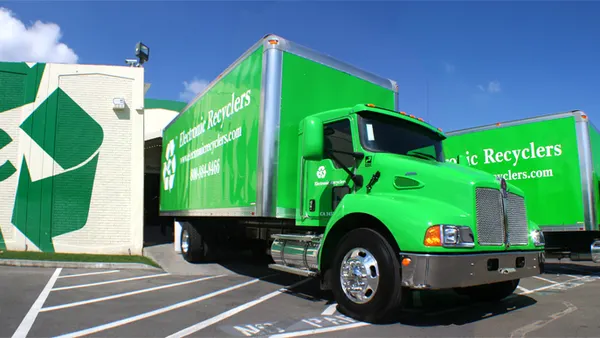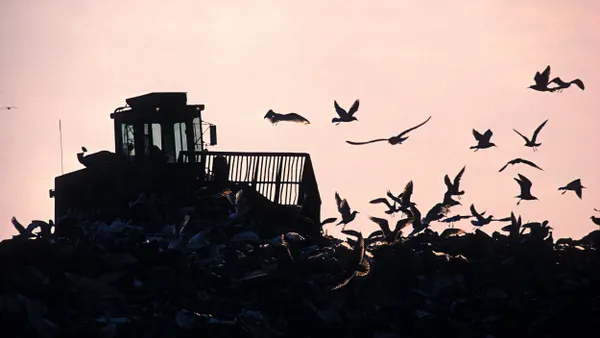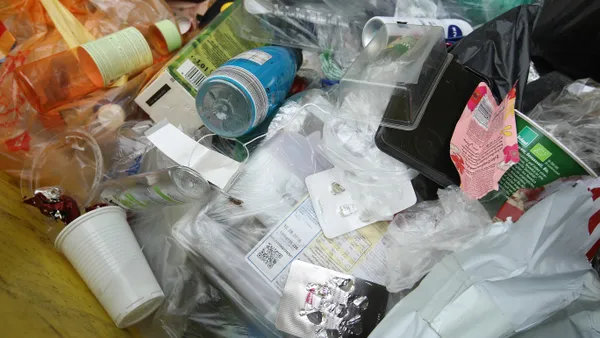Dive Brief:
- One year after California voters approved a statewide ban on single-use plastic bags via Proposition 67, supporters are declaring the decision a success. Californians Against Waste, a nonprofit advocacy organization, issued a celebratory release with supportive statements from both Secretary of State Alex Padilla and Secretary for Natural Resources John Laird.
- Preliminary data from the annual Coastal Cleanup Day, which covered 1,800 miles across the state, shows a decrease in the prevalence of plastic bags. According to reports from many of the state's largest counties, plastic bags were not among the top 10 most common types of litter collected.
- This is also attributed to a larger trend in the cleanup data due to education and local ordinances. In 2010, bags accounted for 7.4% of all items collected. By 2016, that number was already down to less than 2%.
Dive Insight:
California, specifically San Francisco, is seen as the birthplace of the modern anti-bag movement and has experienced all of the challenges that come with that. While the state adopted a ban by law in 2014, via a bill sponsored by Padilla, the implementation was delayed due to a ballot referendum challenge. Despite significant spending from the plastics industry, 53% of voters approved Prop 67 to phase out single-use plastic bags and implement a 10-cent fee on recycled paper or reusable bags. Prop 65, a parallel ballot question that would have prohibited retailers from keeping that fee, was defeated.
In the year since, no other state has successfully adopted its own bag ban or fee policy. Though the discussion continues in parts of the Northeast such as New York, Vermont and Massachusetts. It is still more common to see laws or ordinances passed at the local level, where lobbying pressure is less prevalent. Much of the state-level activity has been around laws to preempt local ordinances. Pennsylvania's governor vetoed such a bill in June, while Arizona was recently in the news for strict enforcement of its own preemption law.
As shown by the California cleanup data, plastic bags have already become a smaller part of beach or marine litter in areas where education is a priority. San Francisco actually moved to begin accepting the bags in its curbside recycling program this fall. Other cities have been more reluctant to make that shift due to tangling challenges at MRFs, and drop-off programs remain the most common option. Some in the recycling and packaging industry view the debate around what to do about bags as far from settled. Others feel that the entire conversation is a distraction from larger issues. Though as the focus increases on marine litter and tighter contamination standards for MRFs, plastic bag reduction can be expected to remain a popular topic.











